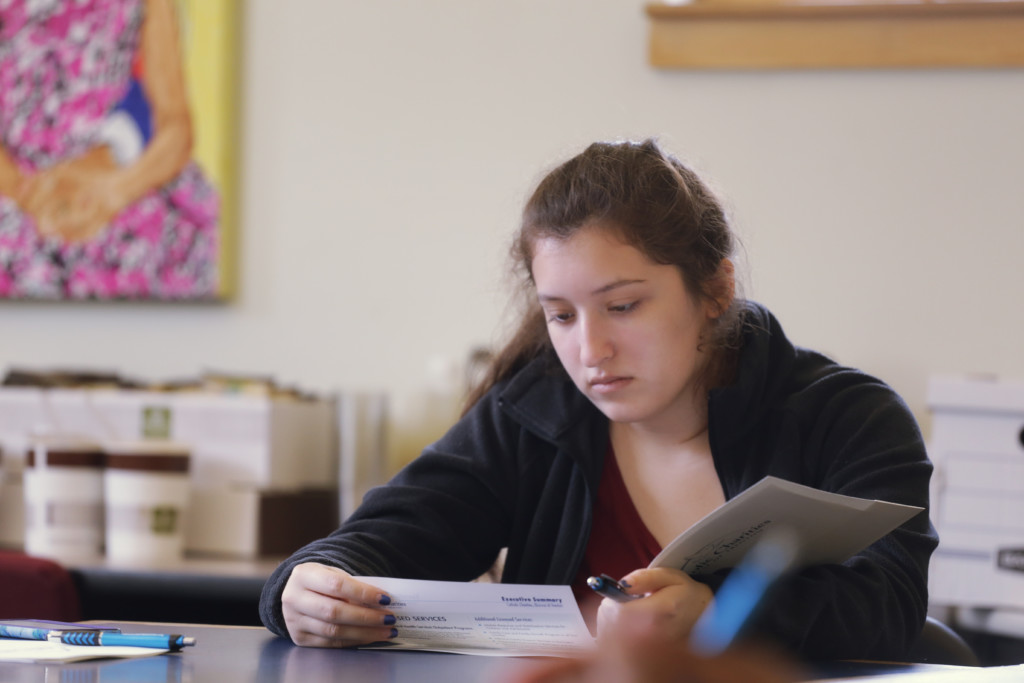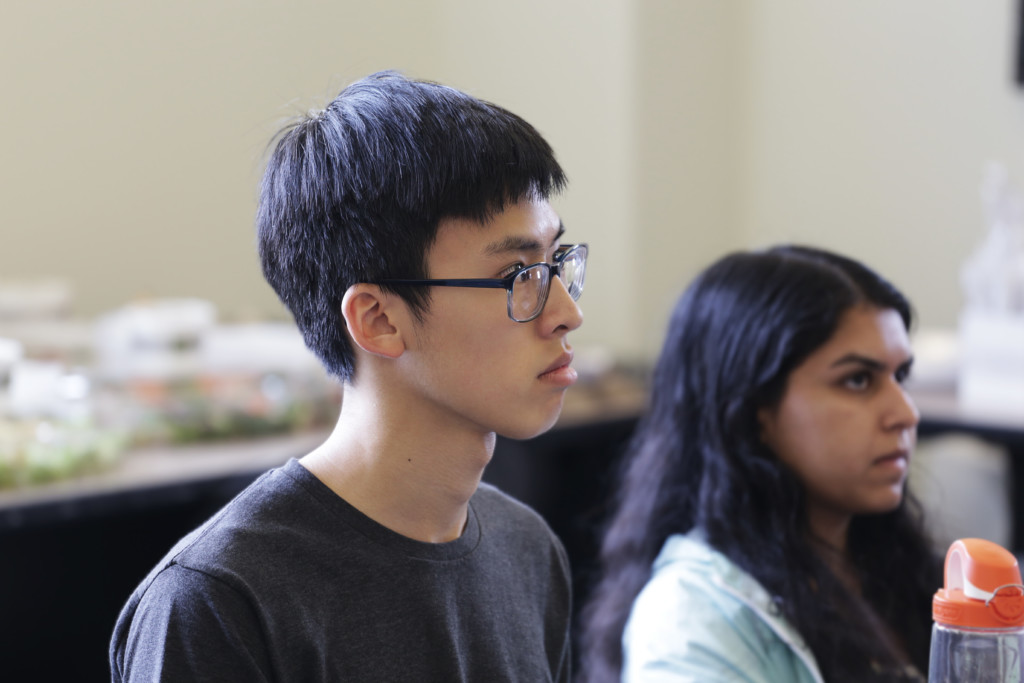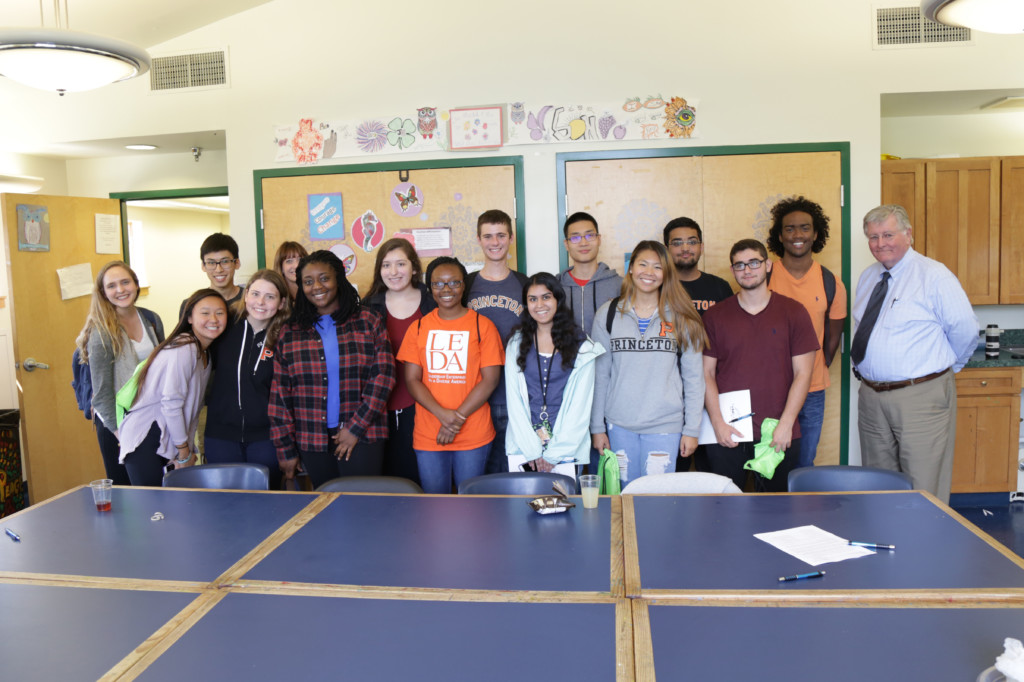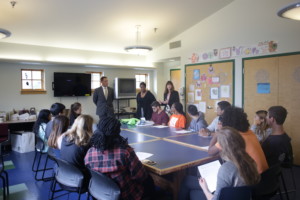Princeton Students Tour Catholic Charities
While many college freshman (now referred to as first-years) were preoccupied with moving in and decorating their dorm rooms, several hundred members of Princeton University’s entering class spent a week this fall learning about community service organizations off campus. Founded in 1987, Community Action (CA) is a week-long immersion orientation program for Princeton University first-year students coordinated by the Pace Center for Civic Engagement. CA facilitates the transition to college by introducing first-year students to the values, expectations and resources of the Princeton community through service and civic engagement.
 Staff from Catholic Charities, Diocese of Trenton and the New Jersey Catholic Conference (NJCC) were invited to meet with a group of Princeton University first-years as part of their exploration of faith-based communities and organizations in Trenton.
Staff from Catholic Charities, Diocese of Trenton and the New Jersey Catholic Conference (NJCC) were invited to meet with a group of Princeton University first-years as part of their exploration of faith-based communities and organizations in Trenton.
According to Emma Coley, Community Action Fellow at the Pace Center for Civic Engagement at Princeton, “The goal is to introduce students to faith-based and interfaith work and help them develop a better understanding of the network of religious institutions and spiritually-motivated individuals that form and support the Trenton-area community.”
A group of 14 students met with Susan Loughery, Director of Operations at Catholic Charities, Diocese of Trenton and Cheryl Davis, Clinical Director of Catholic Charities’ Mercer Behavioral Health Services. They also met with the New Jersey Catholic Conference Executive Director Patrick Brannigan and his colleague, James King, Director of Social Concerns. Cheryl Davis provided the group with a tour of the behavioral health services facility operated by Catholic Charities on Southard Street in Trenton, explaining that nearly all of an individual’s needs are met under one roof. The building includes a wellness center, a pharmacy, a primary care exam room, a cafeteria and of course many group and individual counseling offices. Davis stressed that “mental illness and addiction do not discriminate; no one is immune to these illnesses and nearly one in four adults will be affected at some point during their lifetime.” Susan Loughery shared that “working at a Catholic human services provider means there is greater transparency and employees go the extra distance to insure clients get the assistance they need.”
 In addressing students’ questions regarding the role of the Catholic Church on social issues, NJCC Executive Director Patrick Brannigan stated that the Church’s approach is neither conservative nor liberal. “We walk with those least advantaged among us and serve as advocates for those in need – the immigrant, the sick, the marginalized.” He further explained, “We believe that all people are made in the image of God. So, if we are made in the image of God, ‘What image of God should people see when they look at us?’ For me, the answer is love because God is love. People should find God’s love in how we live.”
In addressing students’ questions regarding the role of the Catholic Church on social issues, NJCC Executive Director Patrick Brannigan stated that the Church’s approach is neither conservative nor liberal. “We walk with those least advantaged among us and serve as advocates for those in need – the immigrant, the sick, the marginalized.” He further explained, “We believe that all people are made in the image of God. So, if we are made in the image of God, ‘What image of God should people see when they look at us?’ For me, the answer is love because God is love. People should find God’s love in how we live.”
Students reactions to the meeting were enthusiastic and several expressed an interest in contributing to the community “outside of the orange bubble of Princeton University.”



